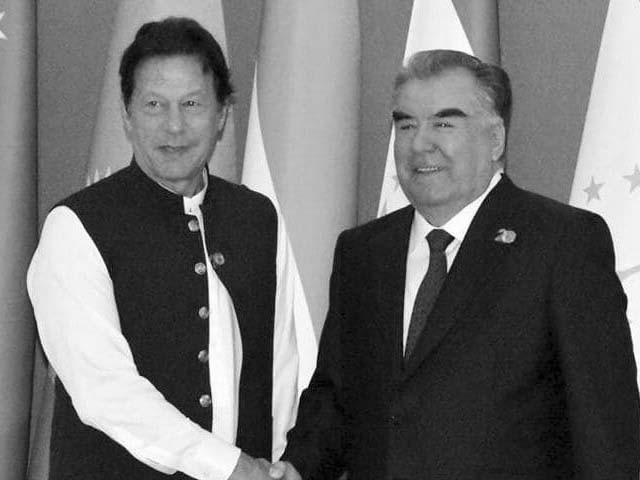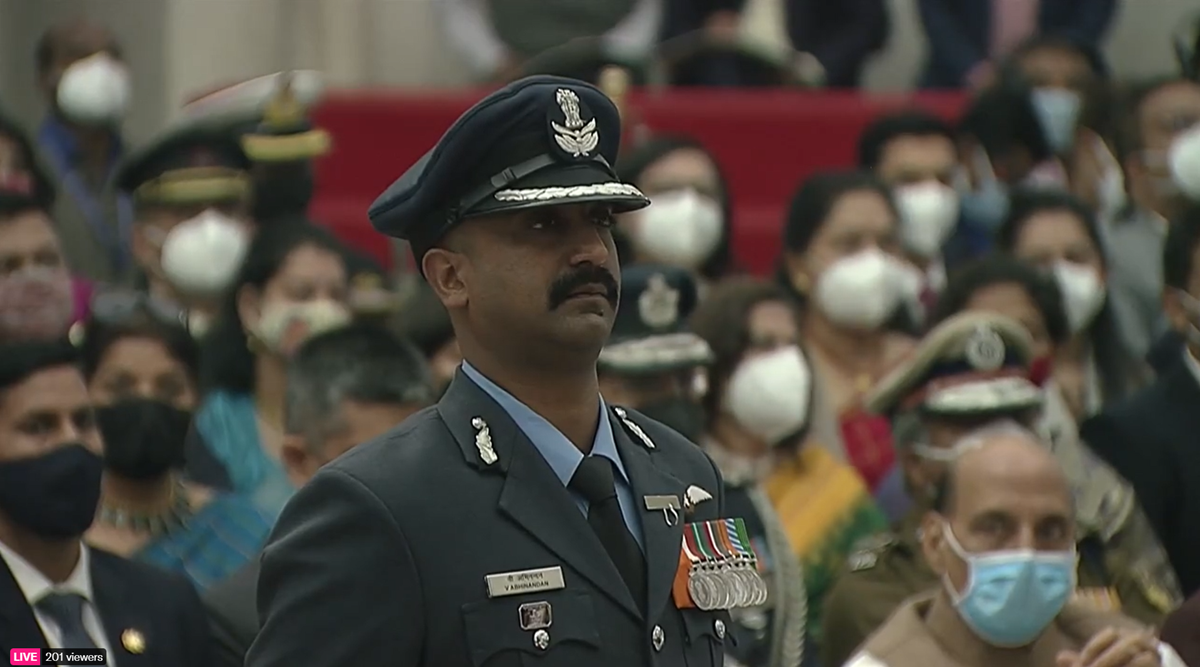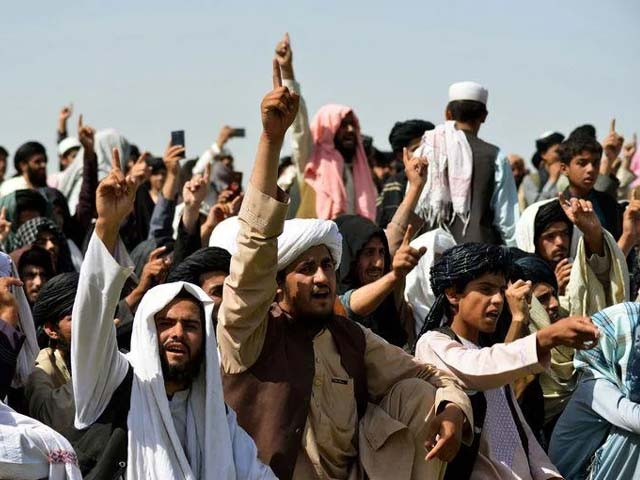
Were Pakistan and Tajikistan the stars of last week’s SCO summit?
Last week’s Shanghai Cooperation Organisation (SCO) summit celebrated the bloc’s 20th anniversary and saw Iran officially begin the process of becoming a full-fledged member. Representatives from that country, Pakistan, China, and Russia also held talks about Afghanistan on the side-lines of the event. The bloc ultimately called for increasing aid to the war-torn country and unfreezing its assets abroad. These were all important developments, but hopefully observers didn’t miss the outcome of Pakistani Prime Minister Imran Khan’s talk with Tajikistani President Emomali Rahmon, which also stands to be very significant in hindsight.
Prime Minister Imran Khan tweeted that “After meetings in Dushanbe with leaders of Afghanistan’s neighbours and especially a lengthy discussion with Tajikistan’s President Emomali Rahmon, I have initiated a dialogue with the Taliban for an inclusive Afghan government to include Tajiks, Hazaras and Uzbeks.” President Rahmon confirmed their joint efforts to this end during the press conference following their meeting. According to his official website, he said that “Tajikistan and Pakistan have agreed to direct all efforts to achieve these goals. We agreed to facilitate negotiations between the Taliban and Tajiks in Dushanbe.”
What’s so newsworthy about this is that these countries are regarded as having the greatest amount of influence over the remaining parties to the Afghan Civil War. Pakistan has historically close relations with the Taliban while Tajikistan extends political support to the so-called “National Resistance Front” that operates in part of the majority-Tajik areas of Afghanistan. Casual observers might have predicted that this would lead to those two’s leaders clashing with one another and perhaps not even agreeing to meet, but the exact opposite is what actually ended up happening.
The reason for this is simple, and it’s that neither Pakistan nor Tajikistan perceive of one another as competitors, both general and specifically in their shared Afghan neighbour. Rather, they pragmatically realised that they could each play responsible roles in stabilising that country in spite of some third parties’ efforts to divide and rule them through recent information warfare provocations. It shouldn’t be forgotten that Pakistani Foreign Minister Shah Mahmood Qureshi visited Dushanbe earlier this year and pledged to improve their ties. I elaborated on “The Prospects Of A Pakistan-Tajikistan Strategic Partnership” at that time too.
Their leaders share a similar long-term vision since they just announced that they’ll upgrade their relations to a strategic partnership. This speaks to the maturity of their permanent military, intelligence, and diplomatic bureaucracies (“deep state”), which decided to constructively cooperate in Afghanistan like I proposed instead of counterproductively compete like some hostile forces want to have happen. While these interests are driven by objectively existing bilateral factors, there’s also no denying that working closer together reflects better on Pakistan in the eyes of Tajikistan’s Russian ally and on Tajikistan in the eyes of Pakistan’s Chinese one.
Pakistan and Russia are in the midst of a fast-moving rapprochement that’s picked up speed since the Taliban’s return to power in Afghanistan. They closely cooperate on managing the situation in that country, but such interactions between their “deep states” are still a relatively new phenomenon. Some in Russia don’t yet trust Pakistan though, especially after allegations that Islamabad secretly encouraged the Taliban’s appointment of a non-inclusive acting government. These suspicions should hopefully be put to rest after Prime Minister Khan publicly announced that his country and Tajikistan are jointly working towards improving that state of affairs.
As for Tajikistan and China, Beijing is modernising its neighbour’s highway network with an eye on pioneering a so-called “Persian Corridor” through there and Afghanistan en route to its new 25-year strategic partners in Iran. For this vision to succeed, however, Tajikistan mustn’t provide any tangible support to its anti-Taliban co-ethnics in Afghanistan, something that President Rahmon is finding difficult not to do in the face of growing grassroots pressure. It’s therefore a relief for China to see that he’s working closely with Prime Minister Khan to promote an inclusive government in Afghanistan since this reduces the chances of him taking unilateral action.
Russian-Chinese interests are therefore served by their top regional partners cooperating in Afghanistan instead of competing there like some wrongly predicted would happen. This also of course first and foremost advances Pakistan and Tajikistan’s interests too, which is the primary reason why they’re working together. Not only do they both benefit by leveraging their influence over the remaining parties to the Afghan Civil War in order to promote peace there, but all of Eurasia does as well. Furthermore, this will also enable those two countries to present themselves as responsible forces for peace in the region and as responsible stakeholders in the conflict.
It’s easy for some observers to take these outcomes for granted and thus assume that last week’s SCO Summit was relatively non-eventful, but those who do so should consider how different everything would have been had either Pakistan or Tajikistan submitted to the pressure to compete with each other instead. One or the other could have functioned as the spoiler by upsetting the SCO’s working dynamics and thus ruining the bloc’s summit, but they both realised how counterproductive that would have been. That’s why they should be considered the stars of last week’s summit since they saved it from descending into dysfunction.




COMMENTS
Comments are moderated and generally will be posted if they are on-topic and not abusive.
For more information, please see our Comments FAQ